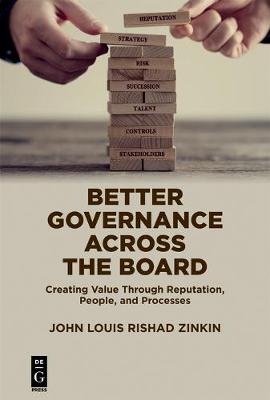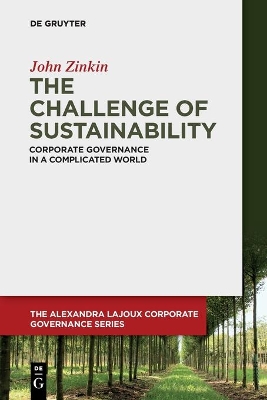The Alexandra Lajoux Corporate Governance
2 total works
Better Governance Across the Board is a practical guide for achieving good corporate governance of organizations regardless of whether they are for profit, listed, state-owned, family owned, or widely held. It delves into the questions boards must ask if they are to fulfill their fiduciary duties, taking account of regulatory issues. Part 1 defines corporate governance, explaining the four reasons why it matters and how it applies to a wide range of organizations. Part 2 explores the "Five P" framework of Purpose, Principles, Power, People, and Processes that helps boards to create sustainable value. Part 3 concludes by showing how the organization’s long-term "license to operate" is achieved by boards focusing on the three most important assets of the organization: its reputation; its people, and its processes.
This book explores the dilemmas that currently exist in modern approaches to corporate governance and suggests ways of overcoming them. Based on ten years of teaching more than 1,500 directors of publicly listed companies, it integrates key principles of leadership, ethics, branding, and governance into a unique five-factor framework to help directors make good decisions in strategy, risk management, succession planning, internal controls, and stakeholder engagement.
The Challenge of Sustainability: Corporate Governance in a Complicated World reviews the evolution of five types of corporate governance and their different sustainability objectives. It discusses the challenges for boards in achieving sustainability from an environmental, economic, employment, and social perspective and introduces the concept of a political tragedy of the commons if boards do what is in the best interests of their profitability only, without considering their responsibilities and unintended consequences for their stakeholders. It explains how volatility, uncertainty, complexity, and ambiguity complicate making sustainable decisions. This book explores ways of helping prevent such negative outcomes.
John Zinkin asserts the director’s need to reconcile volatility with vision, uncertainty with understanding, complexity with courage and commitment, and ambiguity with adaptability. To prevent a potential political tragedy of the commons, the book suggests new decision-making processes; treating employees differently; and makes the case for reforming capitalism. It is aimed at managers, board members and all those who influence them, including shareholder activists, corporate legal personnel, politicians, activists and general readers interested in applying some of these suggestions in their roles as stakeholders, managers and directors.

